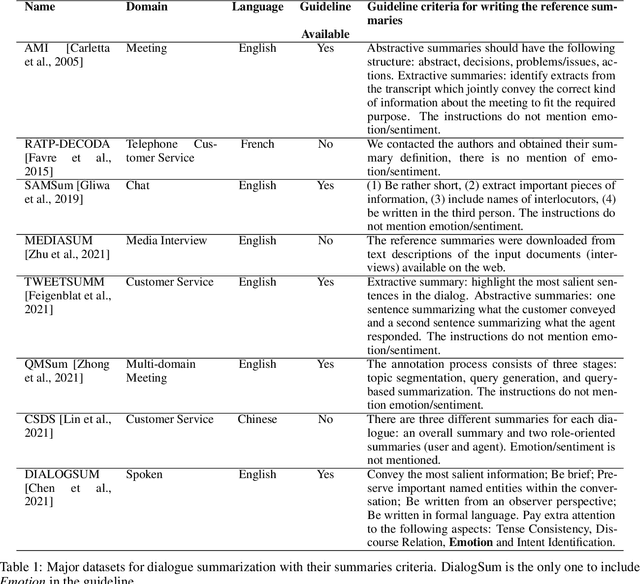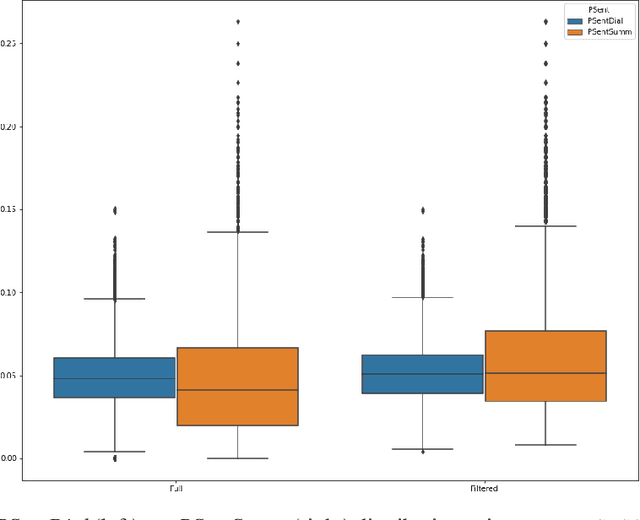Evaluating Emotional Nuances in Dialogue Summarization
Paper and Code
Jul 23, 2023



Automatic dialogue summarization is a well-established task that aims to identify the most important content from human conversations to create a short textual summary. Despite recent progress in the field, we show that most of the research has focused on summarizing the factual information, leaving aside the affective content, which can yet convey useful information to analyse, monitor, or support human interactions. In this paper, we propose and evaluate a set of measures $PEmo$, to quantify how much emotion is preserved in dialog summaries. Results show that, summarization models of the state-of-the-art do not preserve well the emotional content in the summaries. We also show that by reducing the training set to only emotional dialogues, the emotional content is better preserved in the generated summaries, while conserving the most salient factual information.
 Add to Chrome
Add to Chrome Add to Firefox
Add to Firefox Add to Edge
Add to Edge